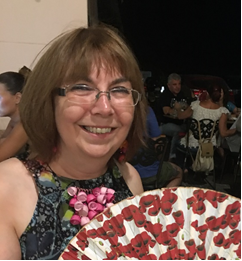Hybrid BSC RS/Life Session/BioInfo4Women Seminar: Love, Money, Fame, Nudge: Enabling Data-intensive BioScience through Digital Infrastructure Nudging
Objectives
Abstract: “Bioscience has emerged as a data-rich discipline, in a transformation that is spreading as widely now as molecular biology in the twentieth century. We look forward to supporting new research careers, where data are valued and shared widely, where new software is a natural part of Biology, and where re-analysis and modelling are as creative as experimentation in understanding the rules of life and their applications.” Prof Andrew Millar FRS, chair Expert Group UKRI-BBSRC Review of data-intensive bioscience 2020.
Indeed - biomedical science is knowledge work and knowledge turning - the turning of observation and hypothesis through experimentation, comparison, and analysis into new, pooled knowledge. Turns depend on the FAIR and Open flow and availability of data and methods for automated processing and reproducible results, and on a society of scientists coordinating and collaborating.
For the past 25 years I have worked on the social and technical challenges in digital infrastructure to support scientific collaboration, data and method sharing, and automate scientific processing. Big ideas I have been instrumental in – sharing and publishing high quality computational workflows, semantic web technologies in bioscience, ecosystems of Research Objects as the currency of scholarly knowledge, FAIR data principles - preached revolution to inspire but need nudges* to get traction.
I’ll talk about making good on Andrew’s quote: what I’m doing to nudge and where we need to do more. I’ll also talk about my experiences as a woman in a digital infrastructure and computer science over the past 40 years – and some nudging is needed there too.
*Thaler RH, Sunstein CR (2008) Nudge: Improving Decisions about Health, Wealth, and Happiness. Yale University Press. ISBN 978-0-14-311526-7. OCLC 791403664.
 Short bio: Carole is a Full Professor of Computer Science at the University of Manchester where she leads the e-Science Group of Researchers, Research Software Engineers and Data Stewards. She has 30+ years’ experience in team science, reproducible science, open data and method sharing, knowledge and metadata management and computational workflows in a range of disciplines, notably the Life Sciences and Biodiversity. She has developed production services for workflows, web services, data management, and semantic metadata with leadership roles in more than 20 digital infrastructure projects: including the FAIRDOM-SEEK (project asset management), IMI’s OpenPHACTS (Semantic Web for pharmacology) and FAIRplus (data FAIRification and cost-benefit models for pharma). She is a partner in BioExcel (Centre of Excellence for Biomolecular Modelling) - with the Barcelona Super Computing Centre - and is the digital lead of IBISBA Research Infrastructure for Industrial Biotechnology - with Universitat Autònoma de Barcelona.
Short bio: Carole is a Full Professor of Computer Science at the University of Manchester where she leads the e-Science Group of Researchers, Research Software Engineers and Data Stewards. She has 30+ years’ experience in team science, reproducible science, open data and method sharing, knowledge and metadata management and computational workflows in a range of disciplines, notably the Life Sciences and Biodiversity. She has developed production services for workflows, web services, data management, and semantic metadata with leadership roles in more than 20 digital infrastructure projects: including the FAIRDOM-SEEK (project asset management), IMI’s OpenPHACTS (Semantic Web for pharmacology) and FAIRplus (data FAIRification and cost-benefit models for pharma). She is a partner in BioExcel (Centre of Excellence for Biomolecular Modelling) - with the Barcelona Super Computing Centre - and is the digital lead of IBISBA Research Infrastructure for Industrial Biotechnology - with Universitat Autònoma de Barcelona.
Carole has been involved in ELIXIR – the European Research Infrastructure for Life Science Data – since its inception. She is the Joint Head of Node of ELIXIR-UK, the UK national node, and is leading/steering many of flagship activities in ELIXIR including: RDMkit, WorkflowHub, TeSS, RO-Crate, and Bioschema . She also serves on the leadership team of Health Data Research-UK and is a founder and investigator and co-founder of the UK’s Software Sustainability Institute. As a pioneer of Open and FAIR data and software in scholarly communication, she is an author of the Nature FAIR data Principles article as well as director of FAIR Computational Workflows for the Workflows Community Initiative, and a partner in the new FAIR-IMPACT EU project.
Carole serves on the Board of Directors of Sage Bionetworks, the SAB of Helmholtz Metadata Collaboration, and 10+ other SABs. She is the UK representative on the G7 Open Science Working Group and serves on the EOSC-A Task Force for Semantic Interoperability.
In 2008 she was awarded the Microsoft Jim Gray Award for outstanding contributions to e-Science, the only woman to receive the award. In 2010 she was elected to the Royal Academy Engineering – currently only 7% of members are women.
Speakers
Host: Salvador Capella, INB GROUP LEADER, Life Sciences - INB
